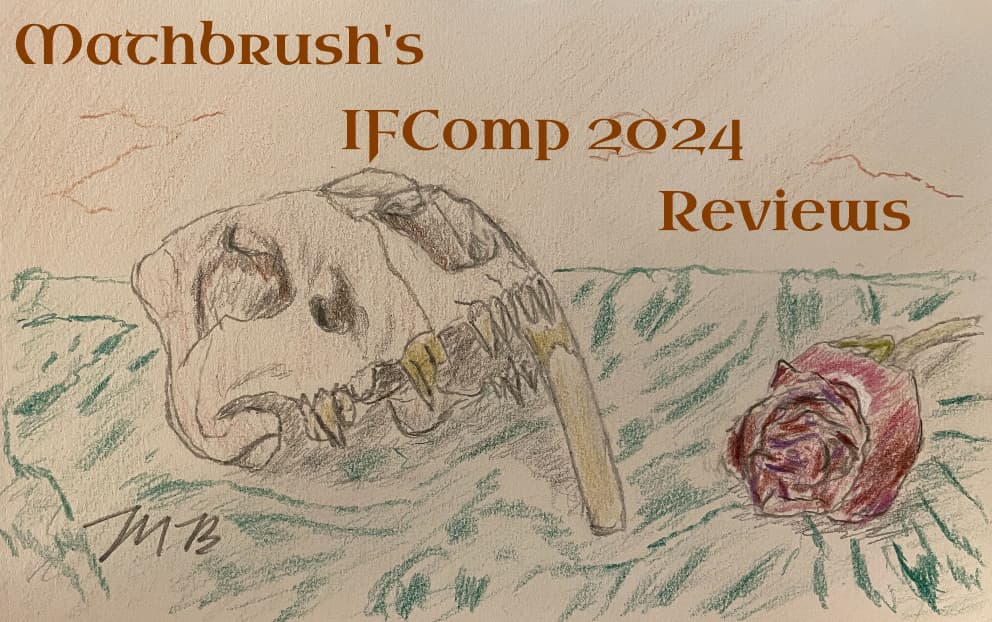The Bureau of Strange Happenings by Phil Riley
This is a long, polished parser game that took me around 4 hours even using copious hints.
You play as an agent with they/them pronouons in the Bureau of Strange Happenings, a government agency that has recently been defunded due to political shenanigans. You end up in a small town strip mall and, even worse, all your devices have to be turned in and replaced.
Unfortunately, your phone has been locked inside your new desk. Getting it out is, in many ways, the big puzzle of the game.
I was excited to see a game about supernatural happenings, but I was kind of bummed because for the first 30-50 minutes I was met with a series of mundane challenges and events–trying to get into a laundromat, using a pawn shop, etc.
Using hints to get past that, I realized that it went so long without supernatural shenanigans because it was the prologue for a much bigger game. I remember after a couple hours of play landing in a large suburban town with over a dozen locations and thinking, ‘okay, I’m going to bed, I’ll handle this in the morning’. There’s a lot of content, and it’s super-polished; I didn’t encounter any bugs.
I do think the entrance point for the supernatural was perhaps too obscure; I had to find one of many rooms, and in that room which had many objects examine something that was only briefly mentioned, and then go to a specific location to use it. I don’t think I would have ever figured it out without either using hints or careful examination (which, to be fair, is true for a lot of parser games).
I enjoyed the unusual directions in this game. I also enjoyed several slow realizations about what is going on; this game really includes a lot of ‘delayed punchline’ or Chekhov’s gun moments.
The difficulty level is high, and I relied very heavily on hints. There is a large proliferation of keys, knicknacks, red herrings, books, and so on.
Story-wise, it’s heavy on atmosphere and world-building over pure plot. The game makes use of (spoilers) lizard people as the main enemy; while some have used this concept as anti-semitic conspiracy in the past, that doesn’t seem to be the case at all in this game, which has a much more X-Files feel.
To me, the roughest part of the game was frequently not knowing what to do. The best parts of the game were the innovative directions and compass system and the big suburban puzzle.
I don’t plan on doing transcripts for all games, but I’ve included one here.
mathbrush1.txt (571.0 KB)
